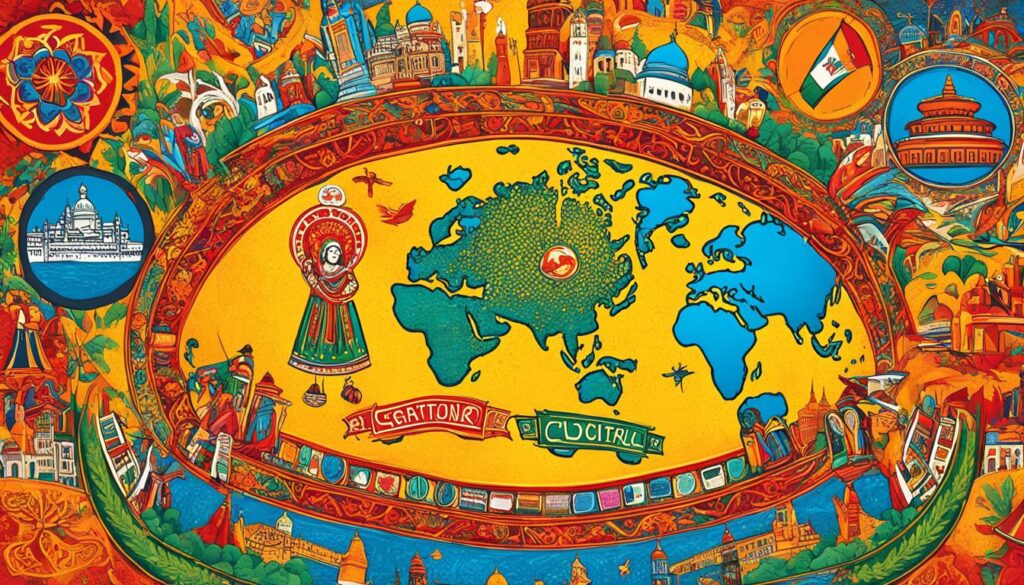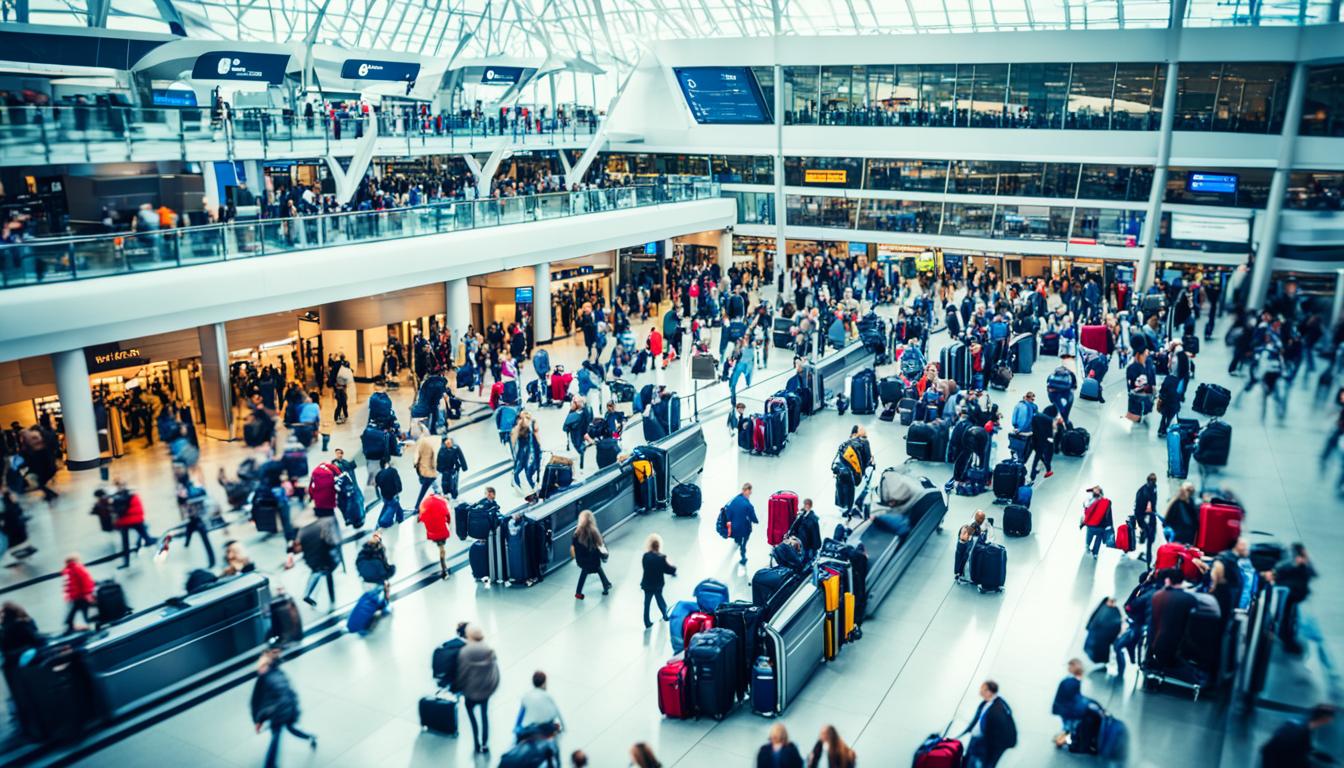Are you prepared to navigate the exhilarating yet complex world of international travel, or are you unknowingly setting off on a journey fraught with challenges?
Embarking on your first cross-border trip can seem daunting, but with the right preparation, it can be a transformative experience. Leading travel experts from Go Overseas emphasize the importance of securing all necessary travel documents well in advance. Understanding your vacation destinations’ cultural nuances, handling critical money matters wisely, and meticulously comparing transportation and accommodation options are essential steps to ensure a smooth and enjoyable trip.
Booking ahead to avoid exorbitant costs or lack of availability, pacing your trip to avoid travel fatigue, and prioritizing health and safety measures will help you travel confidently. Familiarizing yourself with a variety of international travel tips can significantly reduce stress, transforming you into a globally savvy explorer.
Key Takeaways
- Plan and secure travel documents well before departure.
- Research your destination thoroughly to grasp cultural nuances.
- Address financial aspects such as bank notifications and currency exchange.
- Compare transportation and accommodation options to find the best deals.
- Book accommodations and transports in advance to avoid high costs.
- Pace your itinerary to prevent travel fatigue.
- Always prioritize health and safety measures while traveling.
Preparing Your Travel Documents
When you plan to travel abroad, ensuring you have the right documents is crucial. Proper document preparation not only facilitates a smoother journey but also helps you comply with various countries’ entry requirements.
Passport Requirements
Your passport is your key to global travel. Many countries demand that your passport has at least six months of validity beyond your intended stay. Additionally, ensure there are sufficient blank pages for new stamps, as some countries enforce this strictly.
Failing to meet these passport validity conditions may result in denied entry or boarding refusals, thus complicating your travel plans.
Visa Applications
The visa process varies greatly depending on your destination. While some countries, like the US and the UK, allow visa-on-arrival for specific nationalities, others necessitate a more stringent visa processing approach, requiring prior application and approval.
Check the specific entry requirements for your destination well in advance. The U.S. State Department and other government portals provide detailed guidelines on visa processing, helping you streamline your travel abroad experience.
Additional Documents
Beyond passports and visas, other documents might be required based on your destination. Health records, such as vaccination certificates, are often part of the entry requirements for many countries.
Ensure all necessary documents are prepared and stored safely to avoid any obstacles during your journey. For up-to-date health advice, the Centers for Disease Control and Prevention (CDC) serves as a valuable resource.
Researching Your Destination
Embarking on an international journey requires thorough travel research to ensure a smooth and enriching experience. Understanding the intricacies of a destination, including its customs, laws, and health standards, can significantly enhance your trip. This section delves into various aspects you should consider for an informed and respectful adventure.

Cultural Understanding
Grasping the local customs and practicing cultural sensitivity can make a substantial difference in your travel experience. Every country has unique traditions and social norms that visitors should respect. For instance, in Japan, it’s customary to remove shoes before entering someone’s home, while in India, it’s polite to greet people with a namaste. By showing an appreciation for these practices, travelers foster positive interactions and deeper connections with locals.
Local Laws and Regulations
Familiarizing yourself with international laws and local regulations is crucial to avoid any legal troubles during your trip. Laws can vary drastically from one country to another. In Singapore, for instance, the chewing gum ban is strictly enforced, highlighting the importance of knowing such legal oddities beforehand. Ensuring compliance with these laws helps in maintaining a trouble-free and enjoyable journey.
Health and Safety Concerns
Prioritizing health and understanding safety standards is vital when traveling internationally. Researching health risks and necessary vaccinations, as recommended by health authorities like the Centers for Disease Control and Prevention, prepares you for any eventualities. Additionally, learning about safety concerns specific to your destination, such as areas to avoid and local emergency contact numbers, informs wise decision-making and enhances your overall safety.
| Aspect | Details |
|---|---|
| Cultural Sensitivity | Respecting local customs, dress codes, and social norms to foster positive interactions. |
| International Laws | Understanding and adhering to local laws to avoid legal issues, e.g., Singapore’s chewing gum ban. |
| Safety Standards | Prioritizing health and safety by researching necessary vaccinations and local safety advisories. |
By integrating these aspects into your travel research, you cultivate an informed, respectful, and safe international travel experience.
Handling Money Matters

Traveling abroad presents various financial intricacies that demand careful planning. Ensuring your financial security while exploring new destinations involves multiple steps and considerations.
Notifying Your Bank
One of the essential aspects of financial planning is informing your bank about your travel plans. This proactive step helps prevent potential fraud alerts and card freezes. Providing detailed information about your travel itinerary can ensure uninterrupted access to your funds, allowing you to navigate financial transactions seamlessly while abroad.
Managing Local Currency
Understanding the local currency and exchange rates is crucial for effective financial planning. Start by familiarizing yourself with the exchange rates, which can significantly impact your spending power. It’s wise to carry some foreign cash, especially in regions where credit card usage is limited. Having cash on hand ensures you’re prepared for various scenarios, ranging from market shopping to dining in small eateries. Utilize budgeting apps or templates to set daily spending limits, and diligently track your expenses to adjust your budget as needed.
Using Credit Cards Abroad
Credit card usage abroad offers a convenient and secure way to manage your finances, provided you consider several key factors. Selecting a credit card with no foreign transaction fees can save you money on every purchase. Additionally, transaction security is paramount; always monitor your statements and be cautious of where and how you use your card. Maintain a list of bank contact information in case of wallet theft or card issues. To maximize your financial security, carry limited cash amounts and be aware of pickpocketing risks.
Applying these financial planning strategies can help streamline your monetary dealings while enjoying your overseas adventures. For a detailed guide, consider exploring more travel-specific tips to enhance your financial security abroad.
Choosing Transportation and Accommodation
Planning your transportation and accommodation effectively is crucial for a seamless travel experience. Whether you’re navigating public transit or finding the best place to stay, making informed decisions can significantly enhance your trip. Utilizing tools such as Rio2Rome and 12Go for comparing travel routes ensures that you can choose the most convenient and economical options. This not only fosters eco-friendly travel but also enriches your journey with local interactions.
Public Transportation Options
Efficient public transit systems, including buses, subways, and trains, are highly recommended for cost-effective and immersive travel experiences. These systems not only save money but also provide authentic insights into local life. For example, cities like Tokyo and Berlin offer robust public transportation networks that are both reliable and extensive. Utilizing digital tools to compare different routes and plan your journey in advance can save time and enhance your daily travel.
Finding the Best Accommodations
Choosing the right accommodation is pivotal to ensuring safety and comfort during your trip. It’s advisable to consider lodging in safe areas, particularly if you’re traveling alone. Safety features and accessibility can vary greatly across the globe, so thorough research is essential. Reading reviews for safety concerns and looking for hotels with gate access, guards, and other security measures is highly recommended. Experts suggest requesting a room between the third and sixth floors for optimal safety. Upon arrival, familiarize yourself with the nearest emergency exit and the emergency route. For more information on lodging safety, visit the U.S. State Department lodging safety guide.
